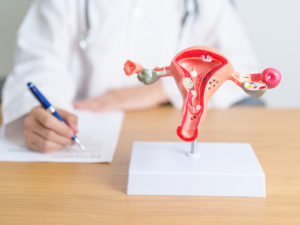
Recovering from a hysterectomy can feel overwhelming, but understanding the process can make a big difference. This guide will help you know what to expect, including physical and emotional changes, recovery timelines, and helpful tips for healing. With the support and care of our Nava Health specialists, you can confidently navigate your recovery.
A hysterectomy is a major surgery that can bring both relief and a range of emotions. Whether it’s needed for medical reasons or as a proactive choice, it’s normal to feel uncertain about your recovery, what to expect, and how things will look four months after surgery.
We’ve created this comprehensive guide to help you through your recovery. Here, you’ll learn about the changes in your body and emotions, from surgery to a full recovery.
Let’s begin with a quick overview of hysterectomy, as your recovery depends on the type of surgery and how it was performed.
Table of Contents
Here Are the 4 Types of Hysterectomy:
Why the Type of Hysterectomy Matters:
What You Need to Know About Gaining Weight After a Hysterectomy:
General Hysterectomy Recovery Timeline
Red Flags During Your Hysterectomy Recovery Process
Here Are the 4 Types of Hysterectomy:
Hysterectomy means surgical removal of the uterus and, in some cases, its surrounding organs.
There are many reasons to remove the uterus, including treating conditions like uterine fibroids, endometriosis, cancer, chronic pelvic pain, uterine prolapse, or abnormal vaginal bleeding that hasn’t responded to other treatments.
The main types of hysterectomy surgery are:
- Total Hysterectomy: Surgical removal of the entire uterus, including the cervix.
- Subtotal or Partial Hysterectomy: Removal of the upper part of the uterus, with the cervix left intact.
- Hysterectomy with Uni- or Bilateral Salpingo-Oophorectomy: Removal of the uterus and one or both fallopian tubes and ovaries.
- Radical Hysterectomy: Removal of the uterus, cervix, parts of the vagina, and surrounding tissues.
The choice of procedure depends on your medical condition, age, and doctor’s expertise, as it affects your reproductive and overall health.
For example, suppose you’re a premenopausal woman suffering from chronic pain and heavy vaginal bleeding. In that case, your doctor will likely recommend a partial hysterectomy to remove the uterus while keeping your ovaries functional and, consequently, avoiding surgical menopause.
But if you were diagnosed with an invasive gynecologic cancer, for example, you’ll probably need a total or radical procedure.
Why the Type of Hysterectomy Matters:
Hysterectomies can be performed through various surgical approaches, including traditional open abdominal hysterectomy, laparoscopic surgery, vaginal hysterectomy, and robotic-assisted surgery.
Each of these approaches has a different recovery process, and the choice for either one of them depends on your overall health, the size of your uterus, and the reasons why you had a hysterectomy.
That means your hysterectomy recovery is directly influenced by the kind of surgery you had and the surgical approach.
So, before deep diving into your recovery process and timeline, we’ll briefly explain these different methods.
Abdominal Hysterectomy
An abdominal surgery is the traditional and more invasive approach where the surgeon makes an incision in your abdominal wall to access and remove your uterus, ovaries, and fallopian tubes if necessary. Your doctor may choose this method if you have a larger uterus, cancer, or if other abdominal issues need addressing.
Recovery Time: The recovery time of an abdominal hysterectomy is typically longer than less invasive methods like a vaginal hysterectomy. It includes, on average, two to four days of hospital stay and from six to up to eight weeks before returning to your normal activities.
Vaginal Hysterectomy
In a vaginal hysterectomy, your uterus is removed through your vagina from a small incision at the top of your vaginal canal. It’s less invasive and often preferred for non-cancerous conditions.
Recovery Time: The recovery time for a vaginal hysterectomy is generally shorter compared to an abdominal hysterectomy. That means your hospital stay may be as short as one to two days, and it may take four to six weeks to heal and return to normal activities.
Laparoscopic Hysterectomy
A laparoscopic assisted vaginal hysterectomy is a minimally invasive procedure. It involves making a small incision in your belly button or several small incisions in your abdomen through which the surgeon can insert a laparoscope (a thin tube with a camera on it) and surgical instruments to perform the surgery.
The surgeon can also do it with controlled robotic assistance to provide enhanced precision.
In a vaginal or laparoscopic hysterectomy, your uterus, ovaries, and fallopian tubes are removed in pieces – through the incisions or from your vagina.
This approach is usually recommended for a range of conditions, including fibroids, endometriosis, and some cancer cases because it offers quicker recovery and less scarring compared to abdominal hysterectomy.
Recovery Time: The recovery time of a laparoscopic vaginal hysterectomy is shorter than an abdominal hysterectomy, with less pain and faster healing. You can usually leave the hospital on the same day or one to two days after the procedure, and you’ll need only two to four weeks before resuming your normal activities.
Hysterectomy Recovery: Physical and Emotional
Let’s start by understanding what happens inside your body after a hysterectomy and how it will adjust to your new anatomy.
Regardless of the type of hysterectomy or the surgery approach, after a hysterectomy, your reproductive organs are no longer there, leaving a void. This may cause some temporary consequences, such as changes in your bowel movements, urinary incontinence, or weight gain.
But your body has a remarkable ability to adapt and heal, so here’s what you can expect.
Organs Shifting After Hysterectomy
Removing your uterus may change the position and function of surrounding organs. For example:
Bladder: Your bladder, which is near your uterus, may experience a slight shift in position. This can occasionally result in changes in bladder function, such as increased frequency or urgency. But these changes are often temporary and improve over time.
Bowel: Your intestines may also shift to some extent, which can occasionally cause changes in bowel habits. This adjustment usually resolves itself as your body recovers.
Pelvic Floor Support
Your uterus provides support to the pelvic floor, and its removal can lead to changes in pelvic floor dynamics, which, in turn, may lead to a sense of fullness, pressure, uterine prolapse, or incontinence. Pelvic floor exercises can help to strengthen the muscles and support structures.
Vaginal Changes
If your cervix is removed during the hysterectomy, the upper part of your vagina may also be affected. But that doesn’t necessarily impact your sexual experience because the lower part usually remains intact.
However, if your ovaries are also removed, you may experience vaginal dryness due to lack of estrogen production. If that’s your case, talk to your doctor about bioidentical hormone replacement therapy (BHRT), which can help alleviate the hormonal imbalance symptoms of surgical menopause.
What You Need to Know About Gaining Weight After a Hysterectomy:
Weight gain is another body transformation some women who undergo a hysterectomy may face.
Changes in your weight can be due to various reasons, including hormonal changes, menopause, and lifestyle adjustments during the recovery period, when you won’t be able to do high-impact physical activities and strength training.
To maintain a healthy weight after a hysterectomy, talk to your integrative medical team about hormonal changes after the procedure and seek clinical nutrition counseling.
They will provide a custom health plan to meet your needs and guide you to a healthy recovery, including lifestyle changes, physical activities, and supplements for weight loss after a hysterectomy.
Emotions After Hysterectomy
The impact of a hysterectomy extends beyond the physical changes. It can influence your emotional well-being and mental health, bringing significant transformations, including changes in your body image, feelings around reproductive ability, and identity.
So, emotional recovery is a vital aspect of your overall healing process after a hysterectomy.
Being realistic about your post-surgery expectations and accepting your new reality play a crucial role in fostering a positive emotional recovery – which, in turn, influences your post-surgery quality of life.
For some women, coping with grief and the sense of loss related to the inability to conceive naturally is overwhelming. If that’s you, seek professional help through therapy, counseling, or supportive groups, and communicate your feelings with your practitioners and loved ones.
A mental health professional may also be useful for advising husbands after hysterectomy. They, too, can be affected emotionally.
Hysterectomy Recovery: Sexual
If you’re wondering if you’ll ever have your sexual life back after hysterectomy, we have good news for you: It’ll get back to normal, as long as you wait for a complete recovery. Following your healthcare provider’s guidance can help ensure a comfortable and positive experience.
Here’s How Long After a Hysterectomy You Can Have Sex:
Generally, you should be able to resume your sexual activities six to eight weeks after the surgery, depending on the type of hysterectomy you had. Before this recovery time, you should not have vaginal intercourse or put anything inside your vagina, including tampons.
The reason for this is that you need to adjust to all the transformations stemming from a hysterectomy and allow your body to fully heal before engaging in sexual activity. So, patience is key during this stage.
But some women guarantee it’s worth the wait. If you’ve always experienced painful sexual intercourse due to a pelvic condition, for example, you’ll be happy to rediscover sex after a hysterectomy.
Sexual Drive After Hysterectomy
The impact on your sexual drive is strongly related to the type of hysterectomy you had.
If your ovaries were kept, you might feel your sexual drive remains unchanged or even improves. But if your ovaries were removed, you could go through surgical menopause, hormonal changes, and experience menopausal symptoms – like vaginal dryness – that influence sexual function and desire.
In such cases, BHRT can help you cope with the hormonal rollercoaster, alleviate symptoms, and improve your sexual drive.
General Hysterectomy Recovery Timeline
Your body is unique, and so is your recovery timeline and what you can expect. Some women may recover more quickly without any sign of post-hysterectomy syndrome, while others may take longer, depending on overall health, age, individual response to the surgery, and adherence to postoperative care instructions.
Keeping to your doctor’s guidance – including restrictions on activities and proper wound care – can contribute to a smoother recovery.
But although recovery time is relative, here’s an overview of the different phases of healing and the factors that can influence it.
Immediate Postoperative Period
Right after the surgery, it’s common to feel tired or nauseous from the anesthesia, so the nurses encourage you to rest as much as possible.
During this phase, you may experience temporary bladder and bowel issues, bloating, low mood or depression, and vaginal discharge. Your healthcare providers will assist you in focusing on initial recovery, pain management, and monitoring for any immediate complications during your hospital stay.
They will also suggest a short walk to help blood circulation and avoid blood clots, or to ease bloating after hysterectomy.
Short-Term Recovery
From the first two to perhaps six weeks post-surgery, expect to gradually resume your simple daily activities, such as driving (if you’re no longer using medications), low-impact physical exercises, and follow-up appointments with your healthcare providers.
The stitches from your vagina or abdominal incisions should naturally dissolve within six weeks. If your doctor used staples, they should remove them in one of your follow-up appointments.
Medium-Term Recovery
Around eight weeks to three months post-surgery, it’s time to increase your activity levels, potentially return to work (according to your type of employment), and monitor for any ongoing symptoms or complications. Restrictions on certain activities may still be in place, but after six weeks, you should be able to resume your sexual activities as well.
What to Expect 4 Months After Hysterectomy
Beyond four months post-surgery, you should achieve complete recovery, including the normalization of energy levels, the return to regular physical activities, and addressing any persistent symptoms or concerns, such as losing weight.
Red Flags During Your Hysterectomy Recovery Process
Regular follow-up appointments are essential to monitor progress and address potential issues early on, especially in the first four to six weeks. But if you notice any of the following concerns or unusual symptoms during the healing process, talk to your doctor as soon as possible:
- Fever: Persistent or elevated fever may indicate infection.
- Increased pain or discomfort: Sudden or worsening pain that won’t go away with prescribed medications.
- Excessive bleeding: Unusual or heavy bleeding from incision sites.
- Difficulty urinating
- Difficulty breathing: Shortness of breath or chest pain may indicate a severe issue.
- Abnormal vaginal discharge: Unusual or foul-smelling discharge after hysterectomy may be a sign of infection.
Discover Your Path to Hysterectomy Recovery with Nava
Embarking on the journey of hysterectomy recovery is a gradual process, so, as you navigate post-hysterectomy life, remember healing is a personal journey that gets easier with time and with the help of a reliable healthcare provider.
At Nava, we understand the importance of personalized care. We tailor our resources and support to aid women in their post-hysterectomy recovery process. From informative content to comprehensive functional health care, Nava is here to empower you on your healing journey.

A Medical Director, and one of the first physicians to join the Nava Health & Vitality Center, Dr. Douglas Lord has made significant contributions to our Center and its founding principles. Dr. Lord has helped develop and implement the Nava Method™—Nava’s proprietary approach to total body wellness. He has also been instrumental in liaising with other expert practitioners to successfully implement Nava’s range of therapies, treatments, and products.





